
Find A Professional
More Items From Ergsy search
-
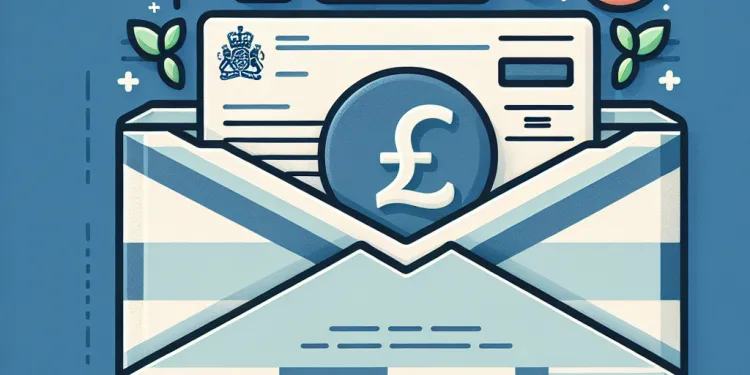
Is the tax refund amount taxable?
Relevance: 100%
-

Can my tax refund be applied to my future tax obligations?
Relevance: 96%
-
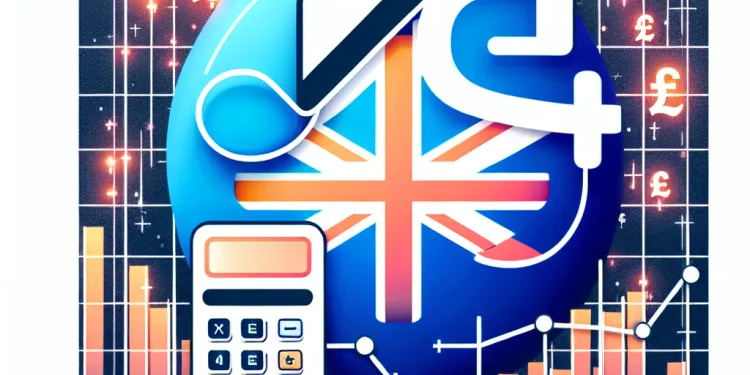
How is the tax refund amount calculated?
Relevance: 87%
-
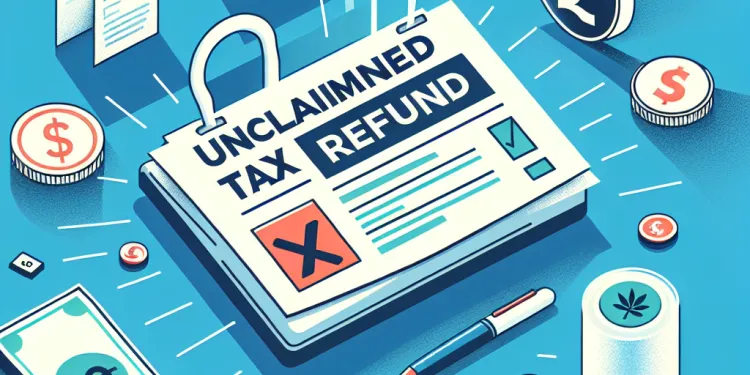
What happens if I do not claim my tax refund?
Relevance: 79%
-
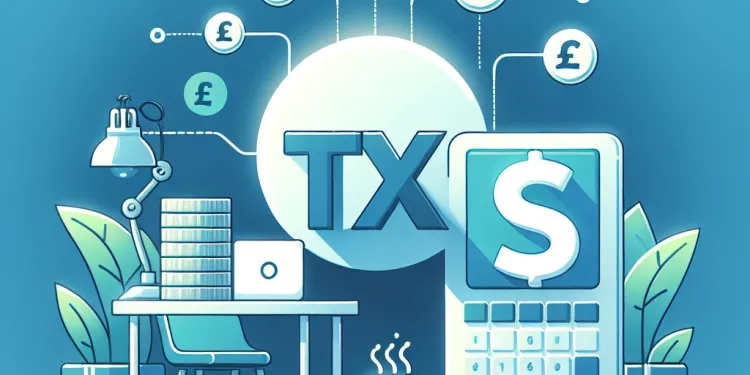
HMRC Tax Refund letters
Relevance: 77%
-
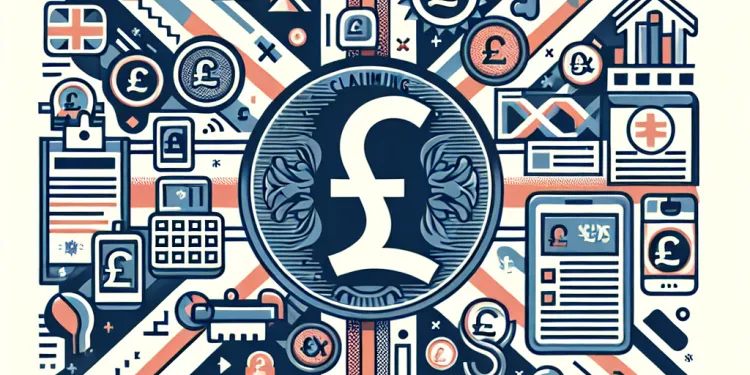
How do I claim my tax refund from HMRC?
Relevance: 74%
-

Why did I receive a tax refund letter from HMRC?
Relevance: 68%
-

Do I need to keep my tax refund letter for future reference?
Relevance: 66%
-

Would a wealth tax replace other taxes in the UK?
Relevance: 63%
-

I received a refund but think I owe tax instead. What should I do?
Relevance: 61%
-

What is an HMRC tax refund letter?
Relevance: 61%
-

How long does it take to receive a tax refund from HMRC?
Relevance: 60%
-
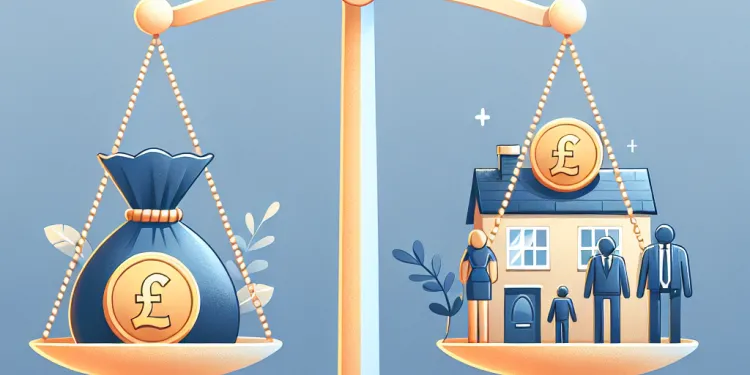
Do unpaid tax debts affect Inheritance Tax calculations?
Relevance: 58%
-

Could a wealth tax encourage tax avoidance?
Relevance: 56%
-

What is the wealth tax in the UK?
Relevance: 55%
-

I received a tax refund letter, but I haven’t overpaid any tax. What should I do?
Relevance: 54%
-

Higher Income Tax - How to Claim Pension Tax Relief | Extra 20% Boost
Relevance: 52%
-

What happens to a deceased’s Income Tax if they were employed?
Relevance: 49%
-

What is the Wealth Tax in the UK?
Relevance: 49%
-

What Happens to Tax Debt After Death? (UK Laws)
Relevance: 49%
-

What is the role of an executor in handling tax debts?
Relevance: 48%
-

Are these grants taxable?
Relevance: 46%
-

Would a wealth tax apply to foreign assets?
Relevance: 45%
-

Can the executor use the deceased's assets to pay tax debts?
Relevance: 45%
-

How do other countries implement a wealth tax?
Relevance: 44%
-

Can I receive my tax refund directly into my bank account?
Relevance: 44%
-

Has any political party in the UK supported a wealth tax?
Relevance: 43%
-

Has the UK ever had a wealth tax?
Relevance: 42%
-

How does council tax relate to wealth in the UK?
Relevance: 42%
-

Why doesn't the UK have a wealth tax?
Relevance: 42%
-

What should I do if I need help managing the tax affairs of the deceased?
Relevance: 42%
-

Could a wealth tax affect economic growth in the UK?
Relevance: 41%
-
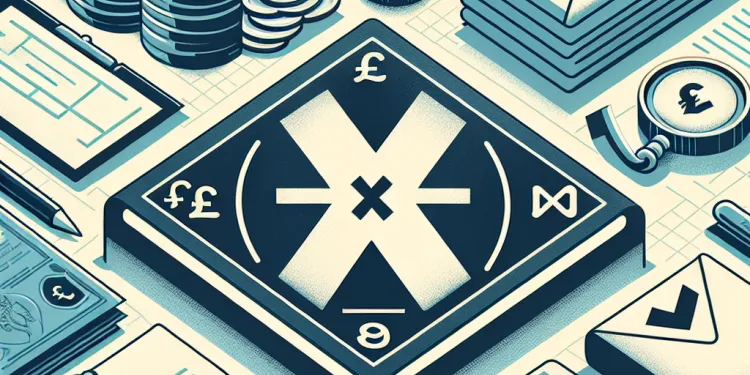
Is it necessary to complete a final tax return for the deceased?
Relevance: 41%
-
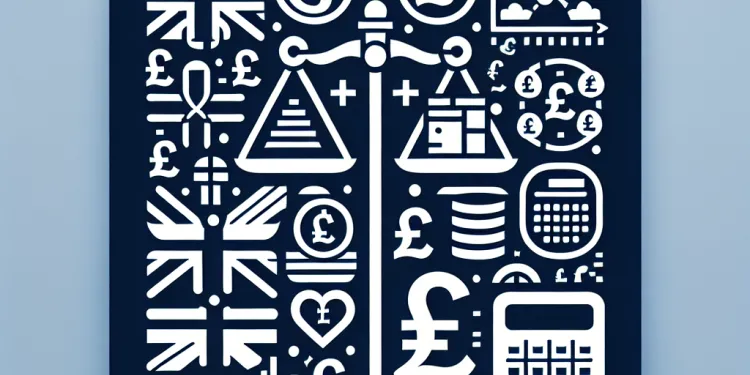
What are the administrative costs of a wealth tax?
Relevance: 40%
-

What taxes need to be paid from the deceased’s estate?
Relevance: 40%
-

Who is responsible for paying the deceased’s tax debts?
Relevance: 40%
-

How might a wealth tax impact inequality in the UK?
Relevance: 38%
-

Will HMRC contact me via phone or email regarding my tax refund?
Relevance: 38%
-

What is a P800 form and how does it relate to my tax refund?
Relevance: 37%
-
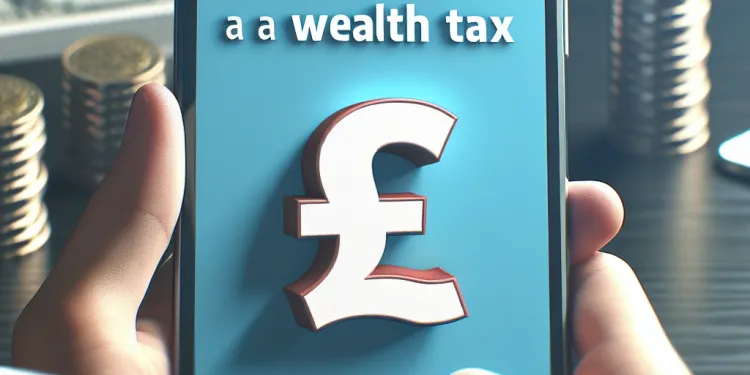
What are the challenges of implementing a wealth tax?
Relevance: 37%
Introduction
Receiving your tax refund directly into your bank account is not only possible in the UK but is also the most convenient and fastest method for taxpayers. This approach eliminates delays associated with receiving a cheque in the post and ensures that your refund is deposited securely into your account. If you are wondering whether you can opt for this method and what steps are involved, this article will provide you with all the necessary information.
Eligibility for Direct Deposit
To receive your tax refund directly into your bank account, you need to ensure that you are eligible for a refund. HM Revenue and Customs (HMRC) determines eligibility based on your tax filings. If you've paid more tax than you owe for a given tax year, HMRC will issue a refund. Once you qualify for a refund, you can choose the direct deposit option by providing your bank details to HMRC.
Submitting Bank Details
Providing accurate bank details to HMRC is crucial for direct deposit. When filing your taxes, particularly through Self Assessment, there will be sections prompting you to enter your bank account number and sort code. Make sure these details are correct to avoid any delays or issues with the transfer. Alternatively, you can provide these details through your Personal Tax Account on the HMRC website.
Advantages of Direct Deposit
Opting for a direct deposit has several benefits. First, it is the speediest way to receive your refund, usually processed within a few days of confirmation from HMRC. Second, it is a highly secure method, reducing the risk of lost or stolen cheques. Furthermore, direct deposit eliminates the hassle of physically depositing a cheque into your bank, saving you time and effort.
How Long Does It Take?
Once your tax return is processed and HMRC approves your refund, it typically takes five to ten working days for the money to appear in your bank account. However, this timeframe can fluctuate depending on the workload at HMRC and bank processing times. Keeping track of your refund status is possible through your Personal Tax Account, where status updates and confirmations are posted.
Addressing Issues
If you encounter any issues or if there's a delay beyond the normal processing time, it is advisable to contact HMRC directly. They can provide information specific to your case and help resolve any discrepancies or errors with the bank account details provided. Keeping personal contact information updated and regularly checking your tax account will also help in preemptively addressing potential issues.
Conclusion
Receiving your tax refund directly into your bank account is an efficient and safe option for UK taxpayers. By ensuring you are eligible for a refund and providing accurate bank details, you can enjoy a swift and secure transfer of funds. Direct deposit is not only a hassle-free choice but also enhances the overall experience of managing your tax affairs with HMRC.
Introduction
You can get your tax refund sent straight to your bank account in the UK. This is the fastest and simplest way to get your money back. It means you don't have to wait for a cheque in the post. Your refund is put safely into your bank. If you want to do this and want to know how, this guide will help you.
Can You Get a Direct Deposit?
To have your refund sent to your bank, you need to check if you should get money back. HM Revenue and Customs (HMRC) decides if you get a refund based on your tax forms. If you paid more tax than you needed to, HMRC will give you money back. Once they say you can have a refund, you can give them your bank details to get a direct deposit.
How to Give Bank Details
It's very important to send the right bank details to HMRC for direct deposit. When you do your taxes, especially with Self Assessment, there will be spots to put your bank account number and sort code. Make sure these are correct so there are no problems. You can also give your bank details using your Personal Tax Account on the HMRC website.
Why Choose Direct Deposit?
There are good reasons to choose a direct deposit. First, it's the fastest way to get your refund, often just a few days after HMRC agrees to it. Second, it's very safe, so you don't need to worry about losing a cheque. Also, direct deposit means you don't have to go to the bank to put in a cheque, so it saves you time.
How Long Will It Take?
After HMRC finishes with your tax return and approves your refund, it usually takes five to ten working days for the money to reach your bank. But this timing might change if HMRC is very busy or depending on your bank. You can keep up with your refund status using your Personal Tax Account where they post updates.
If There Are Problems
If you have any problems or if your money takes too long, it’s a good idea to contact HMRC. They can give you information about your situation and help fix any problems with the bank details. Keeping your personal contact information up to date and checking your tax account often can help stop problems before they happen.
Conclusion
Getting your tax refund directly into your bank is a good and safe choice for UK taxpayers. By checking you should get a refund and giving the right bank details, you can quickly and safely get your money. Direct deposit makes managing your tax with HMRC easier and better.
Frequently Asked Questions
Can I receive my tax refund directly into my bank account?
Yes, you can have your tax refund directly deposited into your bank account by providing the necessary banking information when you file your tax return.
What information do I need to provide for direct deposit of my tax refund?
You need to provide your bank's routing number, your account number, and specify whether it is a checking or savings account.
Is direct deposit the fastest way to receive my tax refund?
Yes, direct deposit is typically the fastest and most secure way to receive your tax refund.
Can I split my tax refund into more than one bank account?
Yes, the IRS allows you to split your refund into up to three different accounts using Form 8888.
Will I get a notification when my tax refund is deposited?
You may not receive a notification from the IRS directly, but you can track your refund using the IRS 'Where's My Refund?' tool.
What should I do if I made an error with my banking information for direct deposit?
If you made an error, the IRS will issue a paper check once the deposit is rejected by the bank.
Can I use a prepaid debit card for direct deposit of my tax refund?
Yes, you can, as long as your prepaid debit card has a routing number and an account number.
Is there a fee for direct depositing my tax refund into my bank account?
The IRS does not charge a fee for direct deposit.
Can I change my direct deposit information after filing my tax return?
Once your tax return has been accepted, you cannot change the direct deposit information. You'll need to check with the IRS for further steps if there's an error.
Will direct deposit be available for both federal and state tax refunds?
Yes, most states offer direct deposit for state tax refunds as well, but you need to provide banking details separately for each.
What happens if my bank account is closed before my refund is deposited?
The bank will reject the deposit, and the IRS will send you a paper check to your mailing address.
How long does it take to receive my tax refund via direct deposit?
It can take as few as 10 days after the IRS accepts your return, but check the IRS website for the latest estimates.
Is direct deposit safe for my tax refund?
Yes, direct deposit is a safe, secure, and fast method for receiving your tax refund.
Can I choose direct deposit if I file my taxes on paper?
Yes, you can choose direct deposit even if you file a paper return by providing your banking information on the form.
Does my bank account need to be in my name for direct deposit?
Yes, your bank account should be in your name for direct deposit to ensure the refund is deposited to the correct recipient.
What is a bank routing number?
A routing number is a nine-digit code that identifies the financial institution where your account is held.
Can I use a foreign bank account for direct deposit?
No, the IRS only allows direct deposit to U.S. bank accounts.
How can I track the status of my tax refund?
You can track the status using the IRS 'Where's My Refund?' online tool.
What happens if I accidentally provide incorrect direct deposit information?
If the information is incorrect, the deposit will likely be rejected, and the IRS will issue a paper check instead.
Is direct deposit available for all types of tax refunds?
Direct deposit is available for most refunds, but there are exceptions, such as refunds for injured spouse claims.
Can I get my tax refund in my bank account?
Yes, you can get your tax refund sent straight to your bank account. This is called direct deposit. It is easy and fast!
Here is what you need to do:
- Make sure you have a bank account.
- When filling out your tax forms, choose direct deposit.
- Write down your bank account number and the bank's routing number. These are on your checks or from your bank.
If you need help, you can ask someone you trust or contact your bank for support.
Yes, you can get your tax refund sent straight to your bank account. Just give your bank details when you fill out your tax papers.
What do I need for my tax money to go straight into my bank?
Here's what you need to tell the tax people:
- Your bank's name.
- Your bank's routing number. This is like the bank's address.
- Your account number. This tells which account to use.
You can get help with:
- Asking someone you trust to help you find these numbers.
- Using a calculator to check numbers if you need to.
You need to tell us:
- Your bank's routing number. This is like your bank's address.
- Your account number. This is like your own personal number at the bank.
- If your account is for checking (where you spend money) or savings (where you save money).
You can ask someone for help if you find this hard. You can use a calculator or a notepad to keep track of numbers.
Is direct deposit the quickest way to get my tax refund?
Yes, putting your tax refund directly into your bank is quick. It is usually faster than getting a check in the mail.
Here are some tips to help:
- Make sure your bank details are correct.
- Use a calculator to check your refund amount.
- Ask a friend or family member if you need help.
Yes, getting your tax refund through direct deposit is usually the quickest and safest way.
Can I put my tax refund into more than one bank account?
Yes, you can. You can ask the tax office to divide your money and send it to different bank accounts.
Here are some tips to help you:
- Make a list of all the bank accounts you want to use.
- Decide how much money to put in each account.
- Tell the tax office where to send the money.
If you need help, you can ask a friend or use a money management app.
Yes, you can ask the IRS to send your tax refund to three different bank accounts. Use Form 8888 to do this.
Will I get a message when my tax refund is put into my bank?
The IRS might not send you a message, but you can check your refund using the IRS 'Where's My Refund?' tool.
What to Do If You Made a Mistake with Your Bank Info for Direct Deposit
If you put the wrong bank details for your direct deposit, follow these steps:
- Stay Calm: It's okay. Mistakes happen.
- Find Help: Ask a trusted person to help you.
- Contact the Bank: Call your bank or visit a branch. Tell them about the mistake.
- Tell Your Employer: Let your boss or payroll department know what's happened.
You might need:
- Pen and Paper: To write down important info.
- Phone: To call the bank or employer.
Remember, getting help quickly is best!
If you made a mistake, the IRS will send you a paper check after the bank sends back the money.
Can I put my tax refund on a prepaid debit card?
Yes, you can use a prepaid debit card to get your tax refund. It is like putting your money on a card instead of in a bank account.
Here are some tips:
- Check if your card can receive direct deposits. This means the money goes straight onto your card.
- You will need to give the card's bank account number and routing number to the tax service.
- If you need help, ask a family member or friend to help you with the details.
You can also use a calculator to help you figure out how much money you should get back.
Yes, you can do this if your prepaid debit card has a routing number and an account number.
Do I have to pay money to get my tax refund put into my bank account?
It’s free! Getting your tax refund directly in your bank is a smart choice.
Need help? Ask someone you trust or use a calculator to understand your money better.
The IRS does not ask for money to put your refund directly into your bank account.
Can I change my direct deposit details after I send my tax return?
Yes, you can change your direct deposit information, but it depends on a few things. Some steps might be needed. Here's how:
- Check your refund status: Go to the IRS website and use the "Where's My Refund?" tool. This will help you see if your refund is still being processed.
- If your refund hasn't been processed yet: Contact the IRS for help. You can call them and ask to update your bank details.
- If your refund has been processed: It might be too late to change your information. Your refund could go to the bank information you already provided.
If you need more help, you can use tools like text-to-speech programs to read the information aloud. You can also ask someone you trust to explain the steps to you.
After you send your tax forms, you can't change where your money goes. If you made a mistake, ask the IRS what to do next.
Can I get my tax refund sent straight to my bank account?
Yes, many states can put your tax refund straight into your bank account. But you need to give your bank details to each state separately.
It can help to use a calculator, an app, or ask someone you trust if you are unsure.
What if my bank account is closed before I get my refund?
The bank won't accept the money, so the IRS will mail you a check to your home address.
When will I get my tax refund in my bank account?
After the IRS says "okay" to your tax return, you might get your money in 10 days. Look at the IRS website for more info.
Is it safe to get my tax refund through direct deposit?
Direct deposit means your money goes straight to your bank account.
Yes, direct deposit is safe. It is better than waiting for a check in the mail.
Here are some tips to make sure it goes well:
- Make sure your bank details are correct.
- Ask a family member or a friend to help check your details if needed.
- If you are not sure about something, you can use a calculator to help, or ask someone you trust.
Yes, direct deposit is a safe, secure, and quick way to get your tax refund.
Can I get my money directly into my bank if I send my taxes by mail?
Yes, you can get money put straight into your bank, even if you fill out a paper form. Just write down your bank details on the form.
Does the bank account need to be in my name for direct deposit?
Your bank account should have your name for direct deposit. This means money can go straight to your bank without any problems.
Here are some helpful tips:
- Ask someone you trust for help if you are not sure.
- You can use voice-to-text apps to make reading easier.
- Check with your bank if you have questions.
Yes, your bank account should have your name on it. This way, the money goes to the right person.
What is a bank routing number?
A bank routing number is like an address for a bank. It helps to find the bank where your money is. It is a special, short number.
If you want to send money or get money, you might need this number. It makes sure your money goes to the right bank.
Tools like number charts or apps can help you understand numbers better.
A routing number is a special 9-digit code. It tells you which bank your account is in.
Can I put my money into a bank account from another country?
You might wonder if you can use a bank account that is not in your country to get your money directly from your job or benefits.
Here are some tips to help understand:
- Ask your bank if they can help with this.
- You may need to check if there are any special rules.
- Using things like voice assistants can help explain complex words.
No, you can only get money sent straight to a U.S. bank account.
How do I check where my tax refund is?
You can check where your refund is by using the IRS 'Where's My Refund?' tool online.
What if I give the wrong bank details by mistake?
If you give the wrong bank information by accident, here is what might happen:
- The money could go to the wrong place.
- You might not get your money on time.
Here is what you can do:
- Check your bank details carefully before sending.
- Call your bank or the place sending your money if you make a mistake.
- Ask for help from someone you trust if you’re not sure.
Helpful tools:
- Use a calculator to double-check numbers.
- Write down your bank details and keep them in a safe place.
- Take your time and don’t rush.
If the information is wrong, the deposit might be sent back. The IRS will send you a paper check instead.
Can everyone get their tax refund directly in their bank?
If you pay too much tax, you get some money back. This is called a tax refund. You can ask to have this money sent straight to your bank. This is called direct deposit.
But not everyone can do this. Sometimes the money must come by mail as a check.
To know more, you can ask someone who helps with taxes or look online on official tax websites.
Tools that can help:
- Ask a person who knows about taxes.
- Check online resources about taxes.
You can usually get your refund with direct deposit. But sometimes you can't, like if you have an injured spouse claim.
Useful Links
- Ergsy carfully checks the information in the videos we provide here.
- Videos shown by Youtube after a video has completed, have NOT been reviewed by ERGSY.
- To view, click the arrow in centre of video.
- Most of the videos you find here will have subtitles and/or closed captions available.
- You may need to turn these on, and choose your preferred language.
- Go to the video you'd like to watch.
- If closed captions (CC) are available, settings will be visible on the bottom right of the video player.
- To turn on Captions, click settings .
- To turn off Captions, click settings again.
More Items From Ergsy search
-

Is the tax refund amount taxable?
Relevance: 100%
-

Can my tax refund be applied to my future tax obligations?
Relevance: 96%
-

How is the tax refund amount calculated?
Relevance: 87%
-

What happens if I do not claim my tax refund?
Relevance: 79%
-

HMRC Tax Refund letters
Relevance: 77%
-

How do I claim my tax refund from HMRC?
Relevance: 74%
-

Why did I receive a tax refund letter from HMRC?
Relevance: 68%
-

Do I need to keep my tax refund letter for future reference?
Relevance: 66%
-

Would a wealth tax replace other taxes in the UK?
Relevance: 63%
-

I received a refund but think I owe tax instead. What should I do?
Relevance: 61%
-

What is an HMRC tax refund letter?
Relevance: 61%
-

How long does it take to receive a tax refund from HMRC?
Relevance: 60%
-

Do unpaid tax debts affect Inheritance Tax calculations?
Relevance: 58%
-

Could a wealth tax encourage tax avoidance?
Relevance: 56%
-

What is the wealth tax in the UK?
Relevance: 55%
-

I received a tax refund letter, but I haven’t overpaid any tax. What should I do?
Relevance: 54%
-

Higher Income Tax - How to Claim Pension Tax Relief | Extra 20% Boost
Relevance: 52%
-

What happens to a deceased’s Income Tax if they were employed?
Relevance: 49%
-

What is the Wealth Tax in the UK?
Relevance: 49%
-

What Happens to Tax Debt After Death? (UK Laws)
Relevance: 49%
-

What is the role of an executor in handling tax debts?
Relevance: 48%
-

Are these grants taxable?
Relevance: 46%
-

Would a wealth tax apply to foreign assets?
Relevance: 45%
-

Can the executor use the deceased's assets to pay tax debts?
Relevance: 45%
-

How do other countries implement a wealth tax?
Relevance: 44%
-

Can I receive my tax refund directly into my bank account?
Relevance: 44%
-

Has any political party in the UK supported a wealth tax?
Relevance: 43%
-

Has the UK ever had a wealth tax?
Relevance: 42%
-

How does council tax relate to wealth in the UK?
Relevance: 42%
-

Why doesn't the UK have a wealth tax?
Relevance: 42%
-

What should I do if I need help managing the tax affairs of the deceased?
Relevance: 42%
-

Could a wealth tax affect economic growth in the UK?
Relevance: 41%
-

Is it necessary to complete a final tax return for the deceased?
Relevance: 41%
-

What are the administrative costs of a wealth tax?
Relevance: 40%
-

What taxes need to be paid from the deceased’s estate?
Relevance: 40%
-

Who is responsible for paying the deceased’s tax debts?
Relevance: 40%
-

How might a wealth tax impact inequality in the UK?
Relevance: 38%
-

Will HMRC contact me via phone or email regarding my tax refund?
Relevance: 38%
-

What is a P800 form and how does it relate to my tax refund?
Relevance: 37%
-

What are the challenges of implementing a wealth tax?
Relevance: 37%